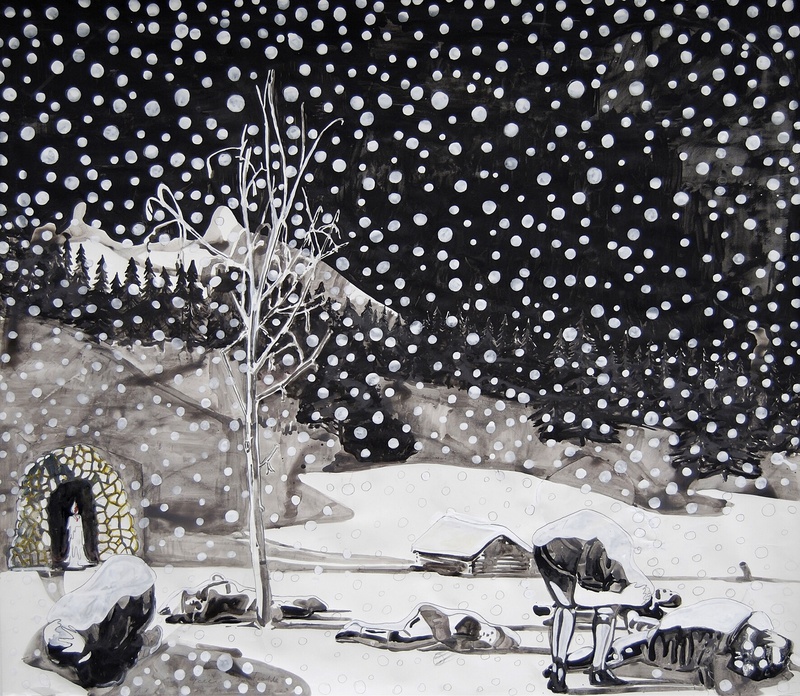How to survive in the event of a nuclear attack? The artist Gijs Assmann picked up an American book that turned out to be full of practical advice: what is the best position to adopt, which place in the home offers optimum protection. Nonsense?
Gijs Assmann used the instructions for this drawing of a place brim-full of disaster, where mankind is hiding, knowing full well that there is no escape.
Initially the artist was searching for a run-of-the-mill image of a peaceful world and he ended up with the sensation of waking up after snow has just fallen, a peaceful white layer disguising the world, making it look like an innocent lily-white paradise. Even sound seems muffled. There is the hint of a suggestion that it is mainly the absence of humankind that contributes to the peaceful, Christmas-like tableau. A white world.
But, despite his intention of drawing a wonderful utopia, the drawing took on a life of its own. What lies hidden beneath the snow? What is stirring under that innocent-looking layer. Or could it be that the snow is charged with radioactive radiation?
Instead of a world at peace, it is as if the apocalyptic end of the world is upon us, in the form of an unending snowstorm. People hide themselves, their bodies are strewn over the ground. Protectively they hold their hands above their heads and wait. Slowly they will disappear under the snow.
A candle lights up a Lourdes-like cave, where Maria could appear to Bernadette. There is hope, although the flame flickers violently. In almost every religion, light stands for the exalted, the infinite. Perhaps the snow should be seen as help from above, falling down to mitigate the suffering? 'The thought of spreading the ashes of the Holy Spirit came into my mind', says the artist, ‘although I always felt the Holy Spirit was a vague concept, I wanted to give it a chance’. But whether the Holy Spirit comes with the snow or not, the image is mainly one of disaster. Seas of love. Perhaps the melting snow will leave behind a pool of love. Too late?

